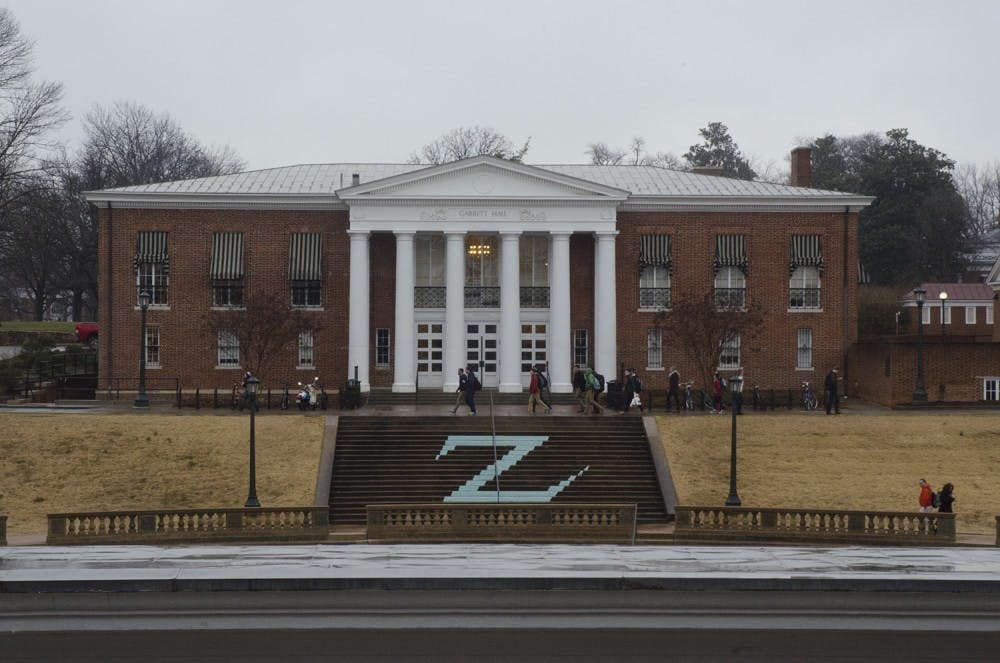The University does not take the health of its students and workers seriously enough to do what is necessary when the going gets tough.
It pains me to write this.
Historically, I have been anything but a detractor of the University. For the past five years, I have run an organization that supports scholarships, professorships and community grants at the University. I have written a staggering number of pieces defending the University and its leadership in their pursuit of better policy outcomes. Before this, I also worked for a member of the president’s executive cabinet.
But in the middle of a pandemic that has already killed more than 183,000 people in half a year, I am certain U.Va. does not have the institutional gumption to implement and enforce policies that would keep people on Grounds healthy this fall semester. That means students — and the workers who must serve them — will get sick. Some may even die.
The reason I criticize the University for its medical incompetence is because for the past five years while I’ve been promoting the University’s efforts on racial and social justice issues, I have also been trying to get the University to comply with federal laws and its own institutional policies on medical accommodations for students — including myself. The University already has an infrastructure that is supposed to protect medically vulnerable students — policies, appeals processes, offices staffed by people who care about student health. None of that stopped a total system breakdown when it came to my disability episode. If the system fails for someone working in an office near the top of the University hierarchy, it will fail for many others too.
This isn’t because there aren’t well-intentioned policies and offices that come up with those policies. It’s because when it comes time to enforce them, there is neither leadership nor accountability.
By the time I was covered in painful lesions and could barely walk, Allan Stam, the now-former Dean of the Batten School of Leadership and Public Policy, refused to give me a medical withdrawal that would have allowed me to return after my health had fully recovered. While petitioning him in 2016, I even proposed creative solutions that included partial withdrawal and retroactive withdrawal — anything that would allow me to go home and take care of myself without wasting $40,000 in tuition and fees. Instead, I was told I could leave permanently. So what happens if a student with COVID-19 needs to withdraw and a dean says no?
Don’t count on classroom instructors for help. After a teaching assistant tried to help me by applying the syllabus’ medical accommodation provisions in the professor’s absence, the teaching assistant was reported to the University Judiciary Committee and to the Honor Committee. Oversight on medical issues at the University is so appalling that school deans are allowed to refer people for expulsion rather than take action to protect the wellbeing of a student. What happens if a student with COVID-19 gets more time to complete a project or turn in a paper, and their dean reports them or their teaching assistant for expulsion?
There are offices at the University that are supposed to resolve these kinds of issues, such as the Office for Equal Opportunity & Civil Rights. The EOCR is staffed with people who are incredibly dedicated to protecting University community members against harassment and discrimination. I sought their help in addressing my issues with Dean Stam. However, when they requested his participation in a meeting, he declined. If no one can compel a dean who writes books about conflict to show up to a conflict resolution meeting, who will tell deans they can’t arbitrarily penalize students who end up disabled by COVID-19 symptoms?
Once my physical deterioration was plainly visible, I made my quest for medical withdrawal known to the Vice President for Student Affairs, an Associate Vice President for Student Affairs, the Dean of Students, two Associate Deans of Students, the Provost, two Associate Provosts, the Batten Registrar, the University Registrar, the President’s Chief of Staff, University Counsel and the Vice President for Diversity & Equity — who was my kind and supportive boss. I was armed with diagnoses from the U.Va. Health System and from Student Health. I worked with all these administrators. I’ve attended galas with many of these administrators. If none of these University leaders can supersede the whims of an intransigent dean when a student has COVID-19, who can?
If I couldn’t get medical withdrawal to take care of my health, the same will undoubtedly happen to other students who need to take care of their health. I’ve witnessed other students struggle to get medical withdrawal or accommodations for physical and mental health events, sometimes unsuccessfully. There is no legitimate basis for the University of Virginia or any of its schools and programs to tell students who experience disabling conditions that they can either leave permanently, stay in their programs or die trying. The University’s actions flagrantly disregard the Americans with Disabilities Act. My experience demonstrates that the University is not strongly motivated by the need to keep students healthy. All the required offices and designees are in place, but if they have little-to-no power, they might as well not exist at all.
When it comes to health, the University has proven it is disgracefully incompetent. I have little hope for students and workers who experience COVID-19 this fall semester.
Brendan Wynn is a 2014 graduate of the College of Arts & Sciences.
The opinions expressed in this column are not necessarily those of The Cavalier Daily. Columns represent the views of the authors alone.







